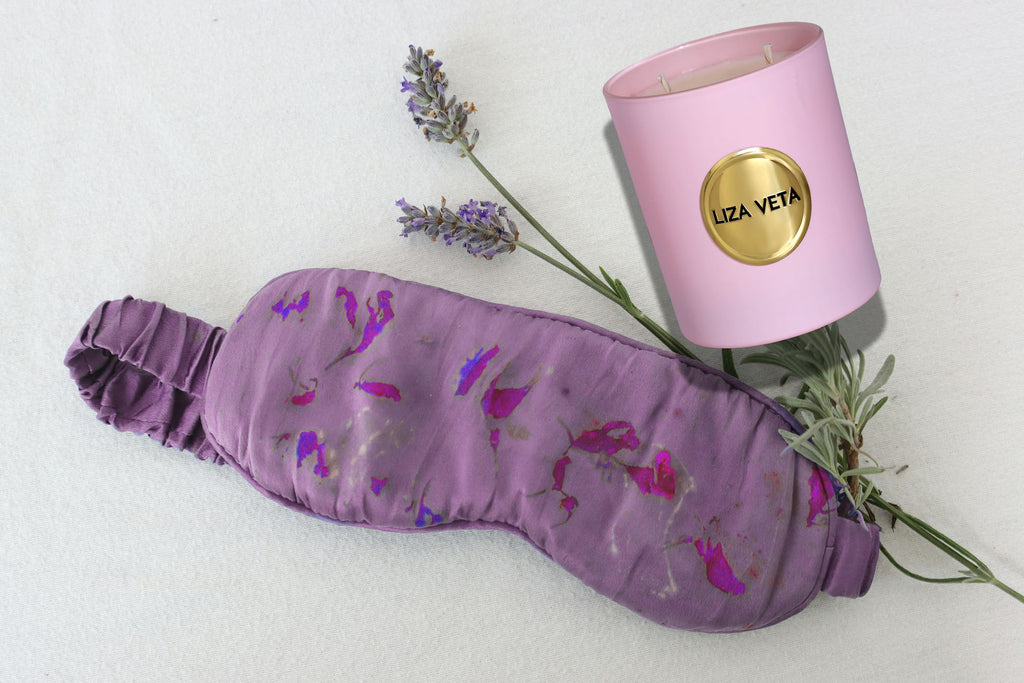
As the temperature drops and the days get shorter, many of us struggle with changes in our sleep patterns. Winter is a season that brings both comfort and challenges, especially when it comes to getting quality rest. Whether it's the cold air, reduced sunlight, or the cosy environment we create indoors, winter can have a significant impact on how we sleep. Understanding how winter affects our sleep can help you make adjustments to get the restful nights you deserve.
Your body follows a natural sleep-wake cycle known as the circadian rhythm. This internal clock helps regulate your sleep patterns by responding to light and dark cues. In winter, the shorter days and longer nights can disrupt this rhythm.
- Reduced Sunlight Exposure: With fewer daylight hours, your body produces less serotonin, a hormone that helps regulate mood and sleep. As a result, you might feel sleepier during the day and have a harder time staying alert.
- Increased Melatonin Production: Longer nights lead to higher melatonin levels, which makes you feel more tired and ready for sleep earlier than usual. While this can be beneficial for some, others may struggle with fatigue and have trouble staying awake during the day.
To help balance your circadian rhythm during winter, it's important to expose yourself to natural light during the day, especially in the morning. If possible, spend some time outside or use a light therapy box to simulate sunlight.
The Impact of Air Temperature
Winter weather can create both positive and negative effects on your sleep. On the one hand, colder temperatures can help you fall asleep faster by lowering your core body temperature. However, winter also comes with challenges that can affect sleep quality:
- Too Cold: If your bedroom is too cold, you may wake up during the night because your body struggles to stay warm. This can lead to fragmented sleep, leaving you feeling tired in the morning.
- Too Hot: On the other hand, heating systems used during winter can make your bedroom too warm and dry. This can interfere with deep sleep stages and cause discomfort, leading to waking up feeling unrefreshed.
- Dry Air: Winter air is often drier, which can lead to dry skin, throat irritation, and nasal congestion, making it harder to sleep through the night. Using a humidifier can help combat the effects of dry indoor air.
The key to improving sleep quality in winter is finding the right balance between staying warm and avoiding overheating. Experiment with layering blankets or using a heated mattress pad to maintain a comfortable temperature for sleep.
Reduced Physical Activity
In colder months, people tend to exercise less, especially if they are not fans of winter sports. Reduced physical activity during the day can negatively impact sleep.
- Exercise and Sleep: Regular physical activity promotes deep sleep and helps your body relax. During the winter, it can be harder to stay active due to the weather or a lack of motivation.
- Less Exposure to Natural Light: With shorter days and more time spent indoors, you're likely getting less exposure to natural light. This can lead to feelings of tiredness, sluggishness, and lack of energy, further disrupting your sleep.
To counteract this, consider incorporating indoor workouts such as yoga, stretching, or strength training into your routine. Even a daily walk outside during daylight hours can help improve sleep and regulate your circadian rhythm.
Tips to Improve Sleep in Winter
Now that we’ve explored how winter affects your sleep, let’s look at practical tips for improving sleep quality during the colder months.
Maintain a Consistent Sleep Schedule
Maintaining a regular sleep schedule is crucial for supporting your body’s circadian rhythm. Try to go to bed and wake up at the same time every day, even on weekends. Consistency helps regulate your sleep-wake cycle and improves sleep quality.
Tip: Set an alarm for both when it’s time to wake up and when it’s time to go to bed. Having a routine helps signal to your body that it’s time to wind down.
Optimise Your Sleep Environment
Your sleep environment plays a crucial role in your ability to get quality rest during the winter months. Here are some things you can do to create a cosy and conducive sleeping space:
- Keep Your Bedroom Cool: While the ideal temperature for sleep is around 60-67°F (15-20°C), make sure your room isn’t too cold. Use blankets or warm sleepwear to stay comfortable.
- Use a Humidifier: Dry air in winter can irritate your throat and skin. A humidifier can add moisture to the air, making it easier to breathe while you sleep.
- Block Out Light: As mentioned earlier, exposure to light during the winter months can help regulate your circadian rhythm. However, once it’s bedtime, make sure your bedroom is dark to encourage melatonin production. Use blackout curtains if necessary.
- Comfortable Bedding: Invest in warm, breathable bedding to ensure that you stay warm but not too hot. Flannel sheets, thick blankets, and down comforters are excellent choices for winter sleep.
Expose Yourself to Daylight
Natural light is one of the most important factors in regulating your sleep-wake cycle. During the winter months, it’s especially important to get outside during daylight hours.
- Morning Sunlight: Try to spend at least 30 minutes outside in the morning sunlight. This can help reset your circadian rhythm and boost serotonin levels, which in turn improves sleep quality at night.
- Use a Light Therapy Box: If you live in an area with long, dark winters, a light therapy box can simulate natural sunlight and help you feel more awake during the day. These devices can be especially useful for people suffering from Seasonal Affective Disorder (SAD).
Avoid Stimulants and Heavy Meals Before Bed
What you eat and drink before bedtime can have a big impact on the quality of your sleep, especially in the winter when our routines might shift.
- Avoid Caffeine: Caffeine can stay in your system for up to 8 hours, so try to avoid coffee, tea, or chocolate in the evening.
- Eat Light: Large meals, spicy foods, or heavy, fatty foods can lead to indigestion and disrupt sleep. Aim for a light, balanced meal a few hours before bed.
- Warm Drinks: A cup of warm, non-caffeinated beverage like herbal tea or warm milk can help relax your body and signal that it’s time to sleep.
Stay Active During the Day
Staying physically active can help improve sleep quality during the winter months. Exercise releases endorphins, which promote relaxation and help you fall asleep more easily.
- Indoor Workouts: If it’s too cold outside, try indoor activities like stretching, yoga, or a home workout routine.
- Take Breaks: If you’re working from home or spending a lot of time indoors, take regular breaks to move around. A short walk or a few minutes of stretching can help reduce stress and improve your sleep at night.
Why Lavender Helps with Sleep

Lavender is one of the most well-known herbs used for supporting better sleep, and for good reason. Numerous studies have shown that the scent of lavender has natural sedative effects, which can significantly improve sleep quality. Here’s how lavender helps with sleep:
- Reduces Anxiety: Lavender has a calming effect on the nervous system, making it an excellent natural remedy for reducing stress, which is a common contributor to sleeplessness.
- Promotes Relaxation: The soothing properties of lavender help to relax muscles and calm the mind, making it easier to fall asleep and stay asleep.
- Improves Sleep Quality: Research has shown that people who inhale lavender oil before bedtime experience better sleep quality, including increased deep sleep (the most restorative stage of sleep).
- Balances Mood: Lavender has mood-stabilising properties that can help lift feelings of depression or sadness, which can worsen during the winter months.
In one of the studies, 'The Effect of Lavender Aroma on Sleep Quality in Adults,' published in the Journal of Alternative and Complementary Medicine (2012), the effects of lavender essential oil on sleep quality were investigated in 144 adults. Participants were exposed to lavender aroma through a diffuser for 30 minutes before bedtime over a period of two weeks. The study found that lavender aroma significantly improved sleep quality, increased the proportion of deep sleep, and reduced sleep disturbances compared to the placebo group.
Discover LIZA VETA lavender-infused products that can help you unwind and relax before bed:
Lavender Room and Linen Spray
Lavender Room and Linen Spray is a simple yet effective way to infuse your bedroom with the soothing scent of lavender. By spritzing it on your bed linens, pillows, or even the air in your room, you create an environment conducive to relaxation. Spray your pillows and sheets about 5 minutes before going to bed, allowing the scent to settle in and create a peaceful sleep environment.

Lavender Reed Diffuser
Lavender reed diffuser is another excellent way to gently fill your bedroom with the relaxing scent of lavender throughout the night. This method allows to release essential oils into the air, providing a continuous, subtle fragrance without the need for candles or sprays. Place the reed diffuser on your nightstand or a shelf near your bed to ensure the fragrance gently lingers in the air as you sleep.

Lavender Candle
Lavender candle adds a warm, soothing glow to your bedroom while also releasing the relaxing scent of lavender. The soft light of the candle can also create a calming atmosphere, signalling to your body that it’s time to wind down. Light the candle 20-30 minutes before bed to fill the room with lavender's calming aroma. Always make sure to blow out the candle before going to sleep for safety reasons.

Keep exploring our website for more helpful posts on similar topics:
TOP 9 ESSENTIAL OILS FOR WINTER WELLBEING
THE POWER OF NATURAL VITAMINS IN WINTER SKINCARE
PROGRESSIVE MUSCLE RELAXATION FOR BETTER SLEEP
HOW DEEP SLOW BREATHING TRANSFORMS YOUR SLEEP
SCENTED DREAMS: HOW OUR LAVENDER CANDLES IMPROVE SLEEP
LAVENDER ESSENTIAL OIL: THE POWER OF AROMATHERAPY FOR SKIN AND WELLBEING
